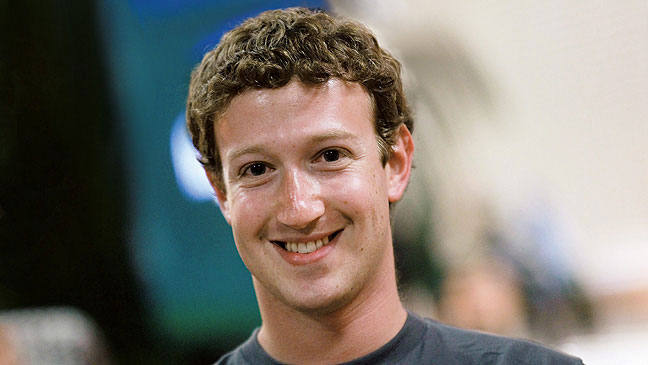There’s a small coffee shop in my town – the kind of business you picture in your mind when you think of a small independent brand…
It is perfect for both casual and professional meetings, with lots of comfy chairs, so customers can relax while sipping their espresso. They get the staff to suggest new entrees and dress up for special occasions, so there’s always a sense of excitement.
They did everything right, yet they were averaging below the ideal daily customer count. Only in the past few weeks they’ve seen an improvement in customer turnover. What’s intriguing is that during this time, the brand partnered with community bloggers who helped spread the word about their coffee shop.
When nothing else worked, these guys tapped into influencers to inspire and forge authentic relationships with local consumers.
To be clear, attracting customers by partnering with influencers isn’t a new strategy.
Celebrity endorsements have been around for several decades. But what’s new is the rise of non-celebrity influencers, who are turning out to be as effective (if not more) at creating brand awareness, building trust, educating consumers, and inspiring brand loyalty.
Did you know?
- Bloggers’ endorsements carry more influencing power than celebrities (source)
- 90 percent of consumers trust peer recommendations (source)
- Influencer marketing is a fast-growing and cost-effective channel for reaching your target audience (source)
eMarketer’s report revealed that marketing professionals and brands worldwide collaborate with influencers for a variety of reasons. The main ones are highlighted in this image:

Disney’s collaboration with mothers is a great example of influencer marketing. Business Insider reported that the company has collaborated with a group of moms (and a few dads) to incorporate the influence and enthusiasm of parents into its marketing endeavors.
The group of mothers includes Wendy Wright, a prolific blogger who calls herself a “Disney Nut”.

Her blog is full of tips on holding Disney-themed events, reviews of Disney movies and advice for visiting Disneyland. For several of Disney’s guests, it’s Wright and other moms who make travel decisions. The premise is that moms with a decent online following are able to influence entertaining planning and travel of other moms.
But influencer marketing isn’t just for B2C brands. Several B2B companies also take advantage of the persuasive power and reach of influencers to develop a positive brand image and increase sales.
Demand Gen Report’s 2014 Content Preferences Survey revealed that B2B buyers rely on the opinion of their industry peers when it comes to purchase decisions. Influencers in the B2B industry can affect sales cycle, without being the actual decision maker.
Usual B2B influencers are the analysts over at Forrester Research, IDC or Gartner. Regardless of what business sector you’re in, a mention of your business in their industry report can have significant impact on your revenue and reputation. According to Chief Marketer’s B2B lead-generation survey, referrals yield the largest number of qualified leads.

SAP, for instance, has an influencer program that enables journalists, tech bloggers and various software experts to express their opinion about SAP’s offerings in forums, communities, and social media.

The group of influencers is valued by buyers for their deep expertise and opinions on a variety of technical topics. SAP even has a team that gives real-time feedback to these influencers which helps the experts tailor their approach based on accurate information and what resonates best with the target audience.
Here’s SAP’s Chief Marketing Officer on the growing importance of digital influence:
ZDNet pointed out that the enterprise sector, a classic B2B model, is rethinking how to attract potential buyers and leveraging techniques which were once reserved for the B2C industry, like influencer marketing.
Why influencer marketing works?
The benefits of influencer marketing are evident, but the question of why consumers place their faith in influencer recommendations over branded campaigns/content is unanswered still.
Remember, influencers are more about conversions rather than comments or shares. Here are 4 reasons why consumers love making purchases based on their advice rather than a brand’s call-to-action:
1. Influencer marketing is like word-of-mouth
With traditional marketing campaigns, it’s difficult for brands to know if an advertisement was perceived as relevant by the target audience, and whether the purchase was the result of the ad campaign or a direct decision. As a result, you could end up retargeting consumers with the same ad, which would get uninteresting.
But when an influencer talks about a brand, it is like word-of-mouth advertising, and the reach is powerful because the viewer demographic is made up of like-minded individuals who are more likely to show interest in the recommendation from a familiar individual than someone viewing a banner advertisement. Research points out that word-of-mouth is more powerful than all other forms of advertisement.

Also, customers acquired through word-of-mouth have a 37 percent higher retention rate. Influencers are considered as opinion leaders representing a powerful community in the consumer marketplace, because they use word of mouth to influence purchase decisions.
Simona Pastore (lifestyle blogger), for instance, collaborates with fashion, travel and lifestyle brands to inspire word-of-mouth marketing for their clothing and other offerings. Famous brands such as Face – Face Paris and Reef – have taken advantage of her reach. She has more than 3k followers on Instagram, who actively engage with the brand she promotes.

She wears the outfits from different designers and brands and tags them respectively. Later, her audience see the image and tag their peers if they like the outfit (they mostly do it, because Simona being in the outfit has a powerful influence), which creates the word-of-mouth chain.
2. Relevant targeting & more respect
Influencers are respected by their audiences because there is no “fake” advocacy involved. Celebrities, on the other hand, aren’t perceived in a similar way because they might not truly love the brand (Alicia Keys may not have used a Blackberry by choice). If the audience believes the influencer’s personality has no relevance to the product/service being endorsed by them, the message given out by the influencer will be weakened, and it will adversely affect conversions.
But in case of relevant targeting and endorsement, influencers are more effective than brands at landing search engine and social media authority, converting negative opinion into a positive one, educating consumers about your product/service, increasing sales, and building brand authority with the help of user-generated content. According to an infographic shared by Adweek, there are influencers in every industry, and marketers rate their personality and relevance higher than their popularity when making a decision about who to work with.

Bottom line: Consumers should trust the source of the recommendation.
You can realize these benefits by working with the right influencers. There are tools and platforms like Buzzoole that can help you discover an influencer in your niche. Through such options, you can enjoy the power of word of mouth and engage influencers within any social channel while cutting costs.
3. Resonate with the consumer’s language
Learning to speak in the language of your audience is no easy feat, especially when your brand is targeting different demographics. There are only a few companies that do it really well (LEGO and ThinkGeek comes to mind). However, most fail at it, and that’s why influencers are important. Influencers are mostly aware of the language and terms that resonate with their audience, which enables them to educate, entertain and persuade.
SocialMediaExaminer cites how Christina Zilber of Jouer Cosmetics posted on Birchbox’s Instagram account for Mother’s Day and received tremendous engagement in return. That happened because the way she detailed her life in Los Angeles (through pictures and text content) resonated with other moms (who commented the most on her posts).

It’s easier to create brand awareness and new leads with influencers speak in the language of their audience. And it’s far more interesting for fans to read content in a familiar language than go through an endless, boring stream of branded content.
This is also the reason why influencers rank above most brands when it comes to entertaining consumers. Just interview any passionate vlogger and they’ll share their desire to constantly entertain their audience.
4. Co-creation looks transparent
When brands invite consumers to co-create a product/service with them, there’s a slight chance of consumers thinking there must be something in it for the brand, which can reduce the positive impact of such a strategy.
But letting consumers co-create with an influencer/thought leader is a great way to add credibility to your brand. Their perspective on your product/service will reinforce your core message and co-creation will create a much more buzz for your brand.
Empower influencers with full reign to share the experience they had with the product/service. Be open to any ideas they suggest for co-creation. They can inspire a strong reaction from their audience as they’re committed to honest and open dialogue. That said, you can let the influencer know what you expect, and give timelines for project completion.
A great example is the partnership between L’Oreal and Michelle Phan, the YouTube beauty guru. Phan and a community of beauty lowers co-created EM Cosmetics, a makeup line.
L’Oreal gave her the lead, and she managed to engage fans in creative co-creation.
Final thoughts
Over the next decade, more brands are expected to work with influencers. Consumers will seek opinions of these influencers at all the stages of the purchase journey. Consider this an opportunity to work with rising stars long before they become unreachable.
What are your thoughts? Have you worked with an influencer in the past? Feel free to share your stories or any comment below.



4 comments